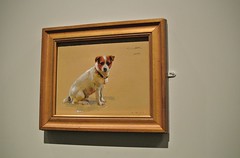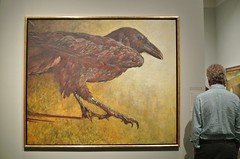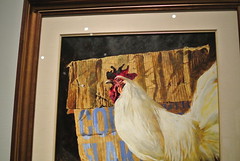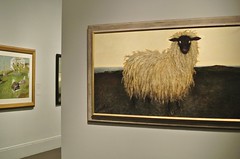Yesterday morning the schedule-gods smiled and I had a spare half hour to write in my notebook, at home, after having crossed off a list of chores: dishes loaded into the dishwasher, laundry piled into the washing machine, cats fed, and litter boxes cleaned. In the spare half hour before I left to teach three classes and prepare two more before coming home and collapsing, ready to do it all over again, I took a spare half hour to write in my journal.
Whenever I’m away from my journal, I struggle the first day I come back: what to say, and where to start? What I like about journaling is the way it requires you to consider each thing in turn: a neat line of words following words. During a hectic week, my thoughts buzz and swarm, too many flying past at once. When I sit down to write, though, these racing thoughts temporarily slow, with me considering one thought then another then the next. The whole mad dash of ideas, obligations, and must-remembers still zooms past, but for a half hour or so I focus on one face in the passing throng, then another, then the next.
Writing, in other words, takes the place of therapy for me: it is a place where I consider and make sense of my thoughts, a sanity-making device. It is also a kind of devotional act. I feel a sort of reverence and fidelity to the page—this present notebook—and feel a pang of guilt when I stray from it, a faithful friend who has never strayed from me.
It almost doesn’t matter what I write in my notebook; all that matters is that I do write, coming back to the page that reflects with such honest accuracy the contents of my wandering mind. It doesn’t matter what I write, in other words; it just matters that I have written. In this regard, I see writing as my own secular kind of prayer, as I doubt God cares much about the words we use when we pray, only the fact that we show up and spend some time.
With writing as with prayer, I think you show up as you are, then words are provided for you, each one appearing of its own accord. Both writing and prayer involve great faith. Not only do you need to believe your wishes will be granted, you also need courage to even utter those wishes in the first place. Do you dare open your heart and share the unspoken desires you find there? Do you dare think you can address God without God laughing in your face? Both writing and prayer require faith that what you say is both true and worth saying. Both writing and prayer demand you have courage to continue even when (especially when) no one seems to be listening.
Both writing and prayer, in other words, require infinite faith in yourself: faith that what lies in your heart is true and worth sharing, and faith that you deserve to be heard. Before a child can ask her father for bread rather than a stone, that child must believe she is deserving of bread. Whether God is there reading my words or hearing my prayers is almost beside the point. I myself benefit from the courage it takes to write or pray, whether or not anyone is listening.
(I wrote this entry last week and only got around to posting it today. The photos illustrating today’s post come from the Jamie Wyeth retrospective on exhibit at the Museum of Fine Arts through December.)






Sep 18, 2014 at 4:21 pm
Beautiful, Lorianne.
LikeLike
Sep 18, 2014 at 5:31 pm
An article: Science show something surprising about people who love to write.
http://mic.com/articles/98348/science-shows-writers-have-a-serious-advantage-over-the-rest-of-us?utm_source=huffingtonpost.com&utm_medium=referral&utm_campaign=pubexchange_facebook
LikeLike
Sep 18, 2014 at 6:10 pm
This is so true: “…you also need courage to even utter those wishes in the first place. Do you dare open your heart and share the unspoken desires you find there? Do you dare think you can address God without God laughing in your face? Both writing and prayer require faith that what you say is both true and worth saying. Both writing and prayer demand you have courage to continue even when (especially when) no one seems to be listening.” I found myselfing nodding in agreement all the way through. Very timely, as I have no expectation of writing beyond my journal, letters and blogging, and while I find it very satisfying there are days when I wonder why I do it.
LikeLike
Sep 18, 2014 at 8:24 pm
As a collector (and user) of many pens, I have a surprisingly number of barely started and empty notebooks. Sure, I use my pens to write letter and notes, but I stutter when it comes journaling (though I love feeling/seeing ink on paper). Your post is a lovely nudge to slow down and sit down and to fill those notebooks one word at a time. Thank you.
LikeLike
Sep 20, 2014 at 11:23 am
What a fine thought piece!
You should submit it to a writing magazine or spiritual living magazine so that more people get to see it.
It says alot in a small piece.
LikeLike
Sep 21, 2014 at 8:20 pm
Well said, I can empathize with the sentiment, particularly the final paragraph! Just started blogging and would like to leave my address if someone would please leave a comment or something?!..anything! http://criticaleye.co. Thanks
LikeLike